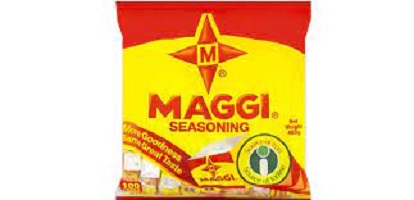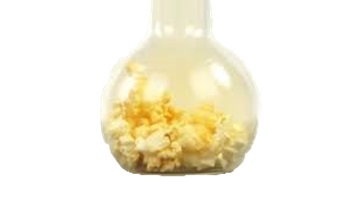Maggi Cube: Eight Facts You Didn’t Know
Maggi Cube: Eight Facts You Didn’t Know

The Maggi Cube Seasoning Cubes
Julius Maggi created Maggi, a seasoning cube, in 1869 with the purpose of “combining taste, enjoyment, and sound nutrition to fulfill the needs of the people.”
Maggi, without a doubt, has more variations than Knorr. Maggi, in particular, has the most variations (up to ten) of any bouillon cube in Nigeria. Chicken, Crayfish, Onion Epice, Naija Pot, Star, Mutton, Kari, Safsafal, Nokoss, and Golden Beef are some of the options.
Thanks to the brand, thousands of jobs have been generated, thousands of farmers have been empowered, and millions of people have been nourished.
Maggi is a mythical product. It’s well-known, and it does make everything taste better. This small flavor explosion in a cube has become a staple in many cultures far beyond West Africa.
Recommended Post >>>>
Here are seven facts about Maggi and Nigerians that you probably didn’t know:
- Maggi Cube Has Sugar in It.
Much has been stated regarding the composition of Bouillon cubes on the Nigerian market, but when it comes to Maggi, speculation reigns supreme. Soybeans are used to make the cube.
Soybean, iodized salt, chili pepper, onions, corn starch, monosodium glutamate, palm oil, color caramel, lovage, and sugar, to name a few ingredients.
Soybean, iodized salt, chili pepper, onions, corn starch, monosodium glutamate, palm oil, color caramel, lovage, and sugar, to name a few ingredients.
According to the World Health Organization (WHO), vitamin A insufficiency is the major cause of avoidable blindness in infants and night blindness in pregnant women.
As a result, sugar is included in Maggi’s recipe as a good source of vitamin A, which aids in the treatment of these two types of blindness.
- Maggi protects the brain.
Iodine deficiency is the leading cause of preventable brain damage, and severe iodine shortage during pregnancy can result in newborn mental impairment or miscarriage, which is common in developing nations.
Nestle introduced iron and iodine-fortified Maggi brands, a good percentage of the required daily supply of iron and iodine, to combat this threat following WHO regulations.
- Nigerian farmers are empowered by it.
Soybeans used in Maggi manufacture are obtained locally, with thousands of tonnes coming from Nigerian farmers.
- Maggi Cube vs. Tradition: Maggi Is Based on Nigerian Culture.
Before the introduction of Maggi in Nigeria, Nigerian women seasoned their cuisine using fermented seeds. Iru, dawadawa and ogiri were used by the Yorubas, Hausas, and Igbos, respectively, and were all made from fermented seeds.
Nestle, which ferments soybeans in the creation of Maggi, is using this idea from Nigeria’s rich culture.
- Daily, millions of Maggi cubes are made.
Nestle manufactures millions of Maggi cubes each day to accommodate burgeoning demand thanks to a network of over 500,000 open market stores and a chain of wholesalers and retailers.
- If you already have Maggi, there is no need for salt.
Surprising! Maggi advises that you eat in moderation because too much of those healthy nutrients might be harmful to your health.
Maggi cubes are not just rich in sodium (popular brands have around 1,000mg per cube or half cube), but they also comprise hydrogenated oils and a lot of monosodium glutamate, or MSG.
Due to the presence of iodine and sodium in both, it is recommended that you use little or no salt in cooking once you have used Maggi.
According to the American Journal of Clinical Nutrition, too much iodine can cause sub-clinical hypothyroidism, which can cause fatigue, cold sensitivity, obesity, and cognitive issues.
High blood pressure and kidney stones are additionally possible side effects of too much salt, especially in adults.
How to Use Maggi Cubes
Food is a medicine; medicine is food, as Nestle suggests; consume in moderation.
Are Maggi Cubes Bad for Your Health?
Maggi cubes are made with carefully selected ingredients that have been approved by the FDA. They are completely safe and pose no risk to customers’ health.
Nestlé has a strong quality control system in place to ensure the quality and safety of all products.
From the raw ingredients used to the finished product, Nestlé has a strong quality control system in place to ensure the quality and safety of all products.
We execute over 400 quality tests during the Maggi cube manufacturing process.
Because Maggi cubes include iodized salt, we urge that you follow your healthcare professional’s recommendations if you’re on a low or no salt diet.


